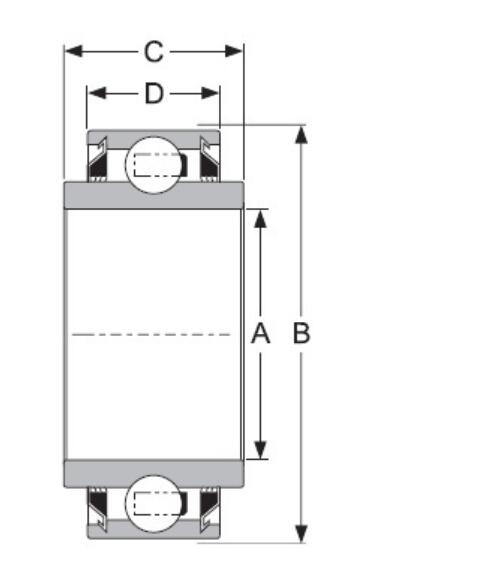Nov . 10, 2024 16:30 Back to list
Suppliers of Bearings for Electric Motors and Their Applications in Industry
Understanding Electric Motor Bearings Suppliers A Comprehensive Overview
Electric motors are vital components in various industries and applications, ranging from household appliances to industrial machinery. At the heart of these motors are bearings, which play a crucial role in ensuring smooth operation, efficiency, and longevity. As demand for electric motors continues to rise, so does the need for high-quality bearings. This article explores the landscape of electric motor bearing suppliers, their significance, and the factors to consider when selecting a supplier.
The Role of Bearings in Electric Motors
Bearings are mechanical components that facilitate motion by reducing friction between moving parts. For electric motors, bearings support the rotation of the rotor, allowing for efficient energy transfer. The quality and type of bearings used in electric motors significantly impact performance, operational efficiency, and maintenance requirements.
Common types of bearings used in electric motors include
1. Ball Bearings Known for their versatility and ability to handle both radial and axial loads, ball bearings are frequently used in electric motors due to their durability and efficiency.
2. Roller Bearings These bearings can carry heavier loads and are preferred in heavy-duty applications. They are less common in small motors but essential for larger industrial machines.
3. Sleeve Bearings Often found in applications where lower speeds are required, sleeve bearings are simpler and less expensive but may require more maintenance due to friction.
Selecting the right type of bearing for a specific application is critical to the motor's performance and longevity
.The Importance of Quality Suppliers
electric motor bearings suppliers

The choice of bearing suppliers can significantly affect the quality and reliability of electric motors. High-quality bearings can reduce wear and tear, vibration, and noise, thus enhancing the overall performance of the motor. Therefore, it is essential to work with reputable suppliers that offer durable and reliable bearings.
Key Considerations When Choosing Electric Motor Bearing Suppliers
1. Quality Standards Ensure that the supplier adheres to international quality standards, such as ISO 9001. This certification demonstrates a commitment to maintaining high-quality production methods and materials.
2. Product Range A good supplier should offer a wide variety of bearings to cater to different motor designs and applications. This includes various sizes, materials, and types of bearings.
3. Technical Support Suppliers should provide technical assistance to help customers choose the right bearings for their specific applications. Knowledgeable staff can offer insights into the best practices for bearing selection and maintenance.
4. Reputation and Experience Research the supplier’s track record and customer reviews. Established suppliers with a solid reputation are likely to offer reliable products and services.
5. Lead Time and Availability Consider the supplier's ability to meet delivery deadlines. Reliable suppliers should be able to maintain stock levels and provide quick lead times, ensuring minimal disruption in operations.
6. Pricing and Warranty While cost is an important factor, it should not be the sole determinant. Compare prices, but also consider the warranty and customer service offered by the supplier. A strong warranty can provide peace of mind regarding the longevity and performance of the bearings.
Conclusion
As electric motors become increasingly integral to various applications, the demand for quality motor bearings is expected to rise. Partnering with the right electric motor bearing suppliers is essential for ensuring the performance and efficiency of these motors. By considering quality standards, product variety, technical support, reputation, lead times, and pricing, companies can find reputable suppliers that meet their specific needs. In a marketplace filled with options, making informed decisions about bearing suppliers can lead to improved operational efficiencies and cost savings in the long run. Whether in manufacturing, automotive, or consumer electronics, the right bearings will ensure electric motors operate at their best, supporting the backbone of modern technology.
Latest news
-
25MM 2 BOLT UCFLX05-14 Flange bearing unit( oval)
NewsMar.07,2025
-
4 bolt UCF 200 series Pillow block bearings
NewsMar.07,2025
-
25MM 2 BOLT UCFLX05-14 Flange bearing unit( oval)
NewsMar.07,2025
-
UCF216-50 4-Bolt Flange Housing Square Bearing
NewsMar.07,2025
-
25MM 2 BOLT UCFLX05-14 Flange bearing unit( oval)
NewsMar.07,2025
-
spherical roller bearing material exporter
NewsMar.07,2025





